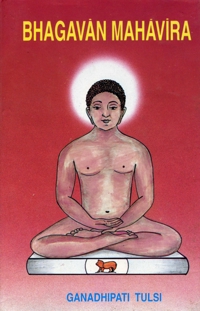 | Chapter 6 | Transvaluation |

he principles of Bhagavan Mahavira have a great relevance today. The concept of freedom was developed in the modern period as a practical ideal. Revolution took place against colonialism. In every country, there was a movement to achieve freedom. A major part of the world is free today.
Even totalitarianism of today cannot exist without putting on the mask of democracy. Today, even inequality can survive only in the garb of equality.
There has never before been such a powerful public opinion in favour of co-existence, human equality, disarmament and anti-militarism. Today no particular name is associated with the origin of these ideals. There have been many great men in the history of the world who have preached these very ideals or identical ideals. But investigation will reveal how vitally the experiences and philosophy of Bhagavan Mahavira have contributed to the development of these ideas and ideals.
Inspired by Bhagavan Mahavira thousands of people attained knowledge and virtue. These people practised and preached the great principles taught by him. They served as the rays of the sun to remove ignorance and lethargy. One of them was Abhayakumara, the son of king Srenika, and the Chief Minister of Magadha. He did a lot of work in strengthening the movement for transvaluation advocated by Bhagavan Mahavira.
A woodcutter was initiated as a monk in the Order of Bhagavan Mahavira. Prior to his initiation, he used to live in Rajagrha, and sell wood there. Once while he was passing by the Secretariat after initiation, Abhayakumara saw him, descended from his office in the Secretariat, and bowed to him. Abhayakumara's colleagues in the cabinet derided him for the reverence shown by him to the woodcutter. They could not relish the Chief Minister of Magadha empire paying homage to a monk who had till recently been an insignificant woodcutter. They asked the Chief Minister whether he knew that the monk was a woodcutter till the other day.
The Chief Minister replied, "How could I not be aware of it? I had attended his initiation."
"Why did you then bow to him?" was the next question.
The Chief Minister retorted. "Bhagavan Mahavira has extolled renunciation of possessions as against possessiveness."
The colleagues asked, "What was there with the woodcutter to give up?"
Abhayakumara did not reply to this question. Next day he wrote a letter to his colleagues saying that if they were ready to lead an absolute celibate life and give up the use of fire, they would be awarded two crores of rupees from the State Exchequer.
Next day his colleagues came to Abhayakumara and said "We have not been able to understand the conditions attached to the payment of two crores of rupees. One could better enjoy married life only if he possessed two crores of rupees, and you propose to give two crores of rupees for leading a celibate life. What would be the use of the money to us after we had taken to celibacy? Similarly, one who had left the use of fire for cooking would either have to remain hungry or beg his food. And what would be the use of two crores of rupees to a person who begged his food? Both the conditions attached to the payment of the amount appeared to be nonsensical."
The Chief Minister asked, "Does not he who renounces these two things renounce possessiveness? Is he not a sacrificer?"
All of them said unanimously, "Yes, indeed."
The Chief Minister said, "Has not the wood-cutter renounced his wife? Sexual enjoyment is available to every person. But the woodcutter has made it impossible for himself to indulge in it. Then how is he not a renouncer? Also he has made a sacrifice in totally giving up the use of fire. Then how is he not a renouncer? The Chief Minister of Magadha had not bowed to a woodcutter but to one who is a renouncer."
The colleagues had nothing more to argue about.
 Acharya Tulsi
Acharya Tulsi

